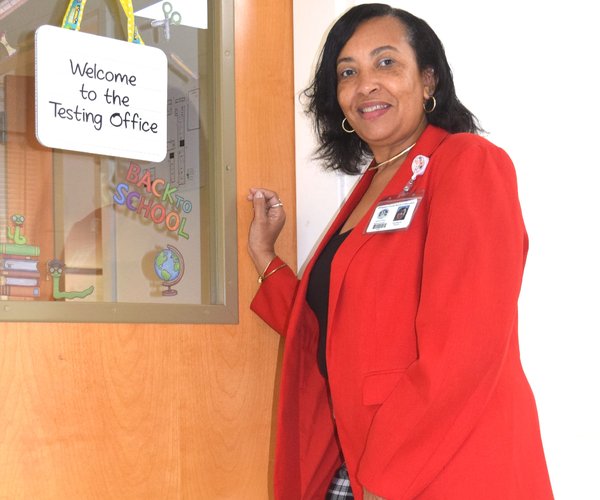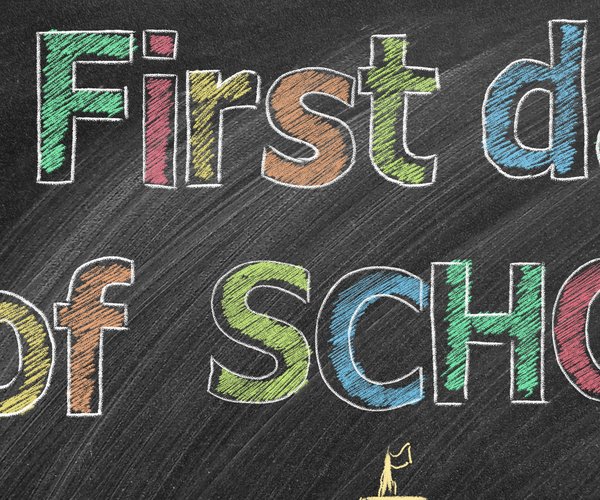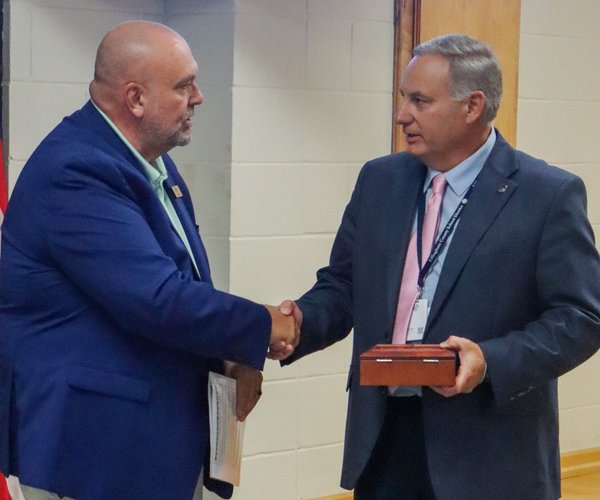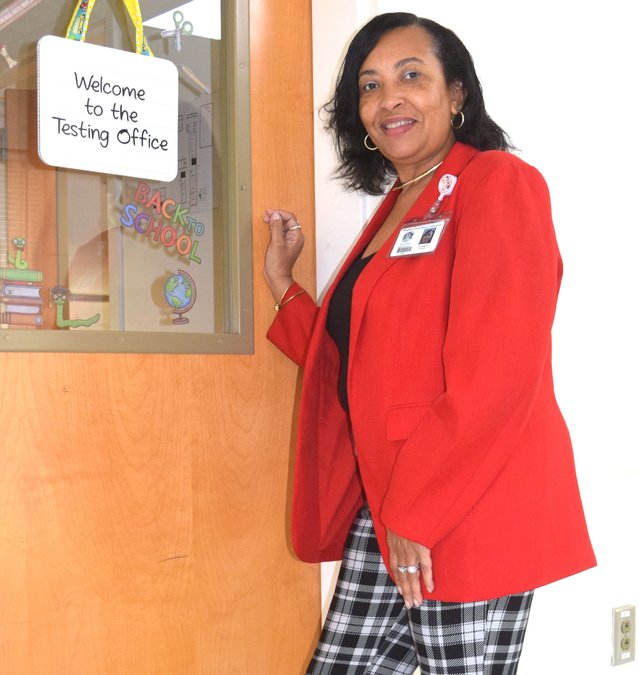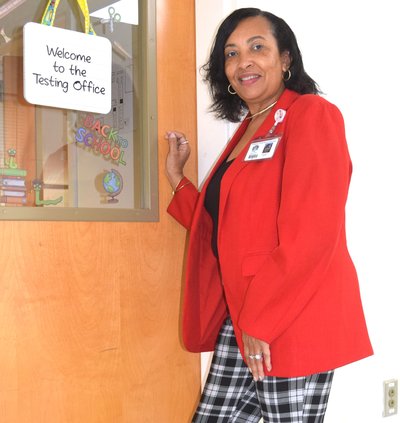Children who need help preparing for kindergarten are getting a head start through the Effingham County school system’s preschool intervention program.
The preschool intervention program serves children from ages 3-5 with special needs, providing such services as physical speech, vision and hearing impaired therapy “and what we call special instruction,” said Teresa Sikes, pre-school intervention coordinator. Sikes said children are referred to the program from daycares, Babies Can’t Wait, the health department and concerned parents. An evaluation procedure is followed.
She said the students the program works with score “a certain deviation below average.”
The program’s goal is to get the children into a regular pre-K setting when they turn 4 years old and eventually into a regular kindergarten setting.
“We’re really big on teaching what we call school skills,” Sikes said. “That’s being in a classroom, a big group, moving with the group, sitting at a table, sitting on the floor, going around the school, going to the lunchroom, transitioning. All of those things are what we call school skills they have to learn to be successful in the classroom.”
Sikes said children are served in classes at the learning centers, in the daycare center they are in, some at their homes and some children are brought to the learning center just for the therapy they need.
When a daycare presents a problem, Sikes will suggest things to try to fix the problem before evaluating the child. If the suggestions don’t work, the parents are approached to see if they would like their child tested.
“It follows the same model of school age children when they are having difficulty. You try to help them in the classroom first,” said Dr. Colleen Webb, exceptional children coordinator.
“Coming into our program children have to enroll just like they would enroll in our school system,” Sikes said. “So all of the things that we need would be like a birth certificate, social security card, immunization record. All of the things that they have to enroll in kindergarten. That’s the same thing they need to enroll at three.”
Sikes said the majority of students in the preschool intervention program go into a regular kindergarten classroom. She said they may need some special education services such as consultation or therapies that require minimal time away from the classroom.
Sikes said the program is another resource for parents.
“Sometimes I hear from parents the biggest thing is ‘my child’s not talking,’ and they go to the pediatrician because they don’t know where to go to,” Sikes said. “The pediatrician will say they’ll grow out of it, or wait until he’s 3 or wait until he’s 4, something will happen. That parent in their gut feels like something is wrong, and I don’t know that they know they can turn to anyone else.”
In speaking to the MOMS Club, Sikes told them that even if parents are just suspicious to come talk to the pre-Kindergarten intervention group.
“Maybe there’s some things that we can suggest, or maybe you telling us we’ll tell you that it is a significant problem, and maybe we should do some testing on them and see what we can do to provide some kind of therapy,” Sikes said.
“We’re a great resource for them to go to, and it doesn’t mean that they have to accept services from us either. If they’re not talking by 3, we need to get working on something.
“We’ve had children that were not talking or were talking very little,” Sikes said. “After a year or two, those kids are talking so much.”
Sikes said therapists come into the classrooms and work with the entire group, and they also give the teachers suggestions to use daily in the classroom.
There are half-day and full-day classes and the program meets Monday through Thursday.
“The teachers provide a setting where children are going to explore their setting, and it’s very language enriched,” Sikes said, “but it’s also school skills. They’re learning how to sit. We use a lot of music. We also do some things with our speech therapist where they do a group activity.
“We’re teaching them how to transition,” Sikes said. “A line is a really big deal in school, and when you’re 3, you have no idea what a line is. We’re just starting out with get behind the teacher. We’re walking, but they’re behind the teacher, then we get behind someone else. At the end of the year, most of them are walking in a line.”
She said teachers set up situations during play time to teach taking turns with toys and sharing with others.
“We’re working on those school skills to interact with their peers and follow the teacher’s directions and follow the school routine,” Sikes said. “The social and the language are probably the biggest things that we do.”
Sikes said she presents to the community when asked. If a parent believes his or her child should be tested, the pre-school intervention program can be called throughout the school year, or the special education office can be reached over the summer.
Special children coordinator number: 764-5623.


